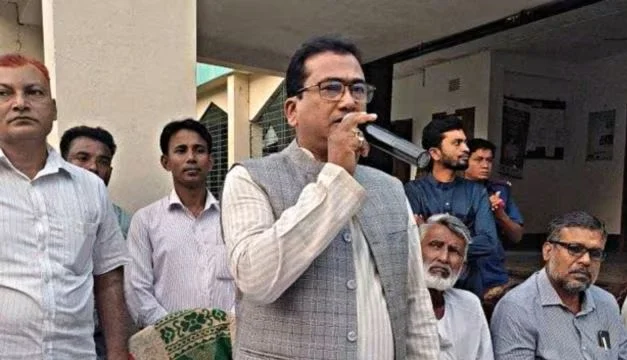The gruesome murder of Bangladeshi MP Anwarul Azim Anar shocked the international community with its sheer brutality. Anar was lured into a flat in Kolkata’s Rajarhat area by a group of men, including Faisal and Shimul Bhuniyan, under false pretenses. Upon entering the flat, he was allegedly rendered unconscious using chloroform and subsequently suffocated to death. The assailants, including Akhtaruzzaman Shaheen and Md Siam Hossain, then dismembered his body throughout the night while consuming alcohol. The killers packed the body parts into various bags and disposed them of in different locations around the city, including near the Krishnamati Bridge on the Bagjola Canal and a pond near Shasan. One of the murderers even wore Anar’s clothes to escape the scene, highlighting the callousness of their actions.
The Inhumanity of Such Brutal Acts
This horrendous act exemplifies the worst kind of brutality, where human life is discarded for selfish gains – be it wealth, political advantage, or personal vendetta. The sheer inhumanity of killing, skinning, and dismembering a person speaks volumes about the depths of cruelty to which humans can sink. Such acts reveal a profound disconnection from basic human empathy and a gross devaluation of life. It underscores a disturbing trend where individuals resort to extreme violence to achieve their ends, showing a blatant disregard for the sanctity of human life.
Psychological Perspective
From a psychological standpoint, such extreme acts of violence can be attributed to a complex interplay of factors, including psychopathology, dehumanization, and social conditioning. Perpetrators of such crimes often exhibit traits associated with antisocial personality disorders, including a lack of empathy, remorse, and guilt. The dehumanization of the victim plays a crucial role, allowing the perpetrators to justify their heinous actions by viewing the victim as less than human.
Additionally, societal and cultural influences that glorify violence or desensitize individuals to brutality can further exacerbate these tendencies, leading to acts of extreme violence.
Islamic Perspective on Killing
From an Islamic perspective, the sanctity of human life is paramount. The Quran explicitly states, “Whoever kills an innocent person, it is as if he has killed all of humanity.” (Quran 5:32) This verse underscores the gravity of taking an innocent life and the far-reaching consequences such an act has on society. Islam, like many other religions, advocates for peace, justice, and the preservation of life, condemning any form of unjust violence.
Historical Context of Brutality
This is not the first instance of such heinous acts; history is replete with examples of brutal killings driven by envy and jealousy. The Biblical and Quranic story of Habil (Abel) and Qabil (Cain) is a prime example, where Cain murdered his brother Abel out of jealousy. Throughout the ages, wars between kings and emperors have been marked by similar savagery. Even during the Islamic era, the assassination of Caliph Umar by a Persian slave is a reminder of the perpetual cycle of violence humanity has witnessed.
A Call for Humanity
The cessation of such brutality can only be achieved when humans embrace their humanity-valuing empathy, justice, and respect for life above all else. Governments have a crucial role to play in this transformation. They must ensure that the perpetrators of such heinous crimes face the harshest punishments, serving as a deterrent to others. Legal systems should be robust and unforgiving towards those who commit such atrocities, ensuring swift and severe penalties.
Furthermore, education systems should be reformed to emphasize moral values, empathy, and respect for human life from an early age. Societal attitudes towards violence need to be challenged and changed through comprehensive awareness campaigns and community programs.
A collective call for humanity is essential. By fostering a culture of empathy and respect, and by ensuring stringent legal consequences for those who commit such brutal acts, we can aspire to a world where the sanctity of life is universally upheld. Only when human beings truly embrace their humanity can we hope to break free from the cycle of violence and build a peaceful and just society.


